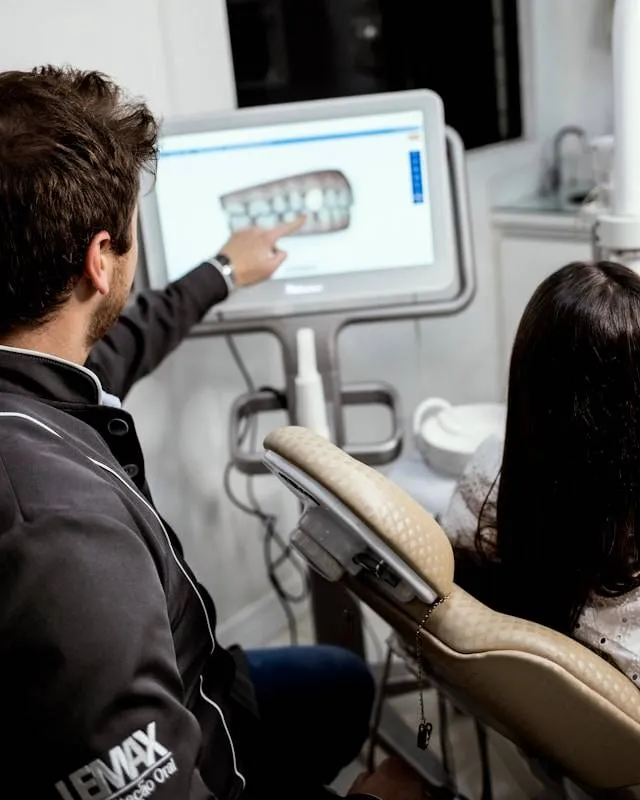4.5. Mini implant
Mini implants are much smaller than conventional implants, typically ranging from 1.8 mm to 3.3 mm. The implants are designed to hold dental restorations in place, such as crowns, bridges or dentures. Unlike conventional implants, which require a more invasive surgical procedure, mini implants can be placed using a minimally invasive technique, often without the need for bone grafting . This technique is therefore suitable for patients with insufficient bone density or who prefer a less invasive treatment option.
Additionally, mini implants have a shorter healing time and can often be fitted with dentures immediately, allowing patients to restore their smile and oral function more quickly. However, it is important to note that mini implants may not be suitable for all cases and should be evaluated by a dental professional to determine the most appropriate treatment option.
5. Implant Procedure at Sakura Dental
To get an implant, choosing a reputable and quality dental center is extremely important. Sakura Dental is proud to provide international standard implant services with a professional process:
Step 1: Examination and consultation
The doctor will conduct an oral health examination and determine a treatment plan.
Step 2: Take X-rays and make a specific plan
Through CT Scanner, the doctor will make a detailed implant plan, ensuring safety and effectiveness.
Step 3: Anesthesia and implantation
With the support of advanced technology, implant placement will be done quickly and accurately. In some cases where there is not enough bone, the surgeon needs to perform some additional procedures such as bone grafting, sinus lift depending on the balanced implant position and the condition of the surrounding anatomical structures.
Step 4: Wait for recovery
The recovery process takes about 1-7 days depending on whether the case is simple or complex. The integration time between the implant and the bone requires a certain amount of time, usually 3-4 months (in cases with enough bone) or 6 months (in cases with bone grafting or systemic diseases such as diabetes).
Step 5: Attach the porcelain crown
Once the implant has stabilized, the dentist will install a porcelain crown to restore the shape and function of a real tooth. This process usually takes about a week to complete.
Step 6: Care and follow-up instructions
Your doctor will give you instructions on how to care for your teeth after the implant and schedule regular check-ups.
6. How long does the dental implant procedure take? How long do dental implants last?
The dental implant process typically takes several months to complete. It involves several steps, including the initial consultation, placement of the implant in the jawbone, healing time, and the placement of the artificial tooth or crown. Treatment times can vary depending on the individual and the complexity of the case. On average, it can take anywhere from three to nine months to complete. This time allows the implant to integrate with the jawbone, providing a stable and long-lasting foundation for the artificial tooth.
When it comes to the longevity of dental implants, they are designed to be a permanent solution for missing teeth. Dental implants can last a lifetime if properly cared for. However, it is important to note that the longevity of dental implants can be affected by a variety of factors, such as oral hygiene practices, overall health, and lifestyle habits.
Regular dental checkups and maintenance, including proper oral hygiene and avoiding habits such as smoking, can contribute significantly to the longevity of dental implants.
7. How is implant surgery different from traditional dentures, bridges or other solutions?
Dental implants differ from traditional dentures, bridges or other solutions in many ways.
Firstly, dental implants are a permanent solution to replace missing teeth. Implants are surgically placed into the jawbone, merging with the bone over time. This provides a stable and durable foundation for replacement teeth. In contrast, dentures can be removable or denture adhesives can be used to achieve denture stability, while bridges rest on adjacent teeth to act as abutments.
Second, dental implants look more natural than other options. Replacement teeth are custom-made to match the shape, size, and color of a patient’s existing teeth, resulting in a seamless, natural-looking smile. Unlike dentures, which can sometimes slip or shift when speaking or eating, dental implants remain firmly in place, allowing for improved comfort and confidence during daily activities.
Finally, dental implants provide long-term oral health benefits. When teeth are lost, the underlying jawbone can deteriorate over time. Implants help preserve bone by stimulating growth and preventing bone loss. This can prevent changes in facial structure and maintain a more youthful appearance.
Additionally, dental implants do not require the use of adjacent healthy teeth like a bridge, which helps preserve the integrity of the surrounding natural teeth. Overall, dental implants provide a more permanent, natural-looking solution that is beneficial to those looking to replace missing teeth.
See more: Benefits of implant surgery
8. Is implant surgery suitable for everyone? Is the implant procedure painful?
Dental implants are a popular and effective solution for replacing missing teeth. However, they may not be suitable for everyone. The success of implants depends on factors such as the patient’s overall health, the condition of their jawbone, and their commitment to oral hygiene. Patients with certain medical conditions, such as uncontrolled diabetes or autoimmune disorders, may not be suitable candidates for dental implants.
Additionally, heavy smokers or those with a history of radiation therapy to the head and neck may be at higher risk of implant failure. It is important to consult with your dentist to determine if implants are the right option for you.
A common concern for patients considering dental implants is the level of pain associated with the procedure. While each individual’s pain tolerance is different, most patients report that they experience minimal discomfort during the dental implant procedure. Local anesthesia is often used to numb the area and ensure a pain-free experience. Some patients may experience mild soreness or swelling in the days following surgery, but this can usually be controlled with over-the-counter pain medications.
It is important to follow your dentist's post-operative instructions to ensure a smooth recovery and minimize any possible discomfort or risks.
You should consult with the doctors at Sakura to assess your personal health and determine if dental implants are the right option for you. You should also discuss any concerns you have about pain or discomfort with us, which will help alleviate your fears and ensure a comfortable experience throughout the dental implant procedure.









